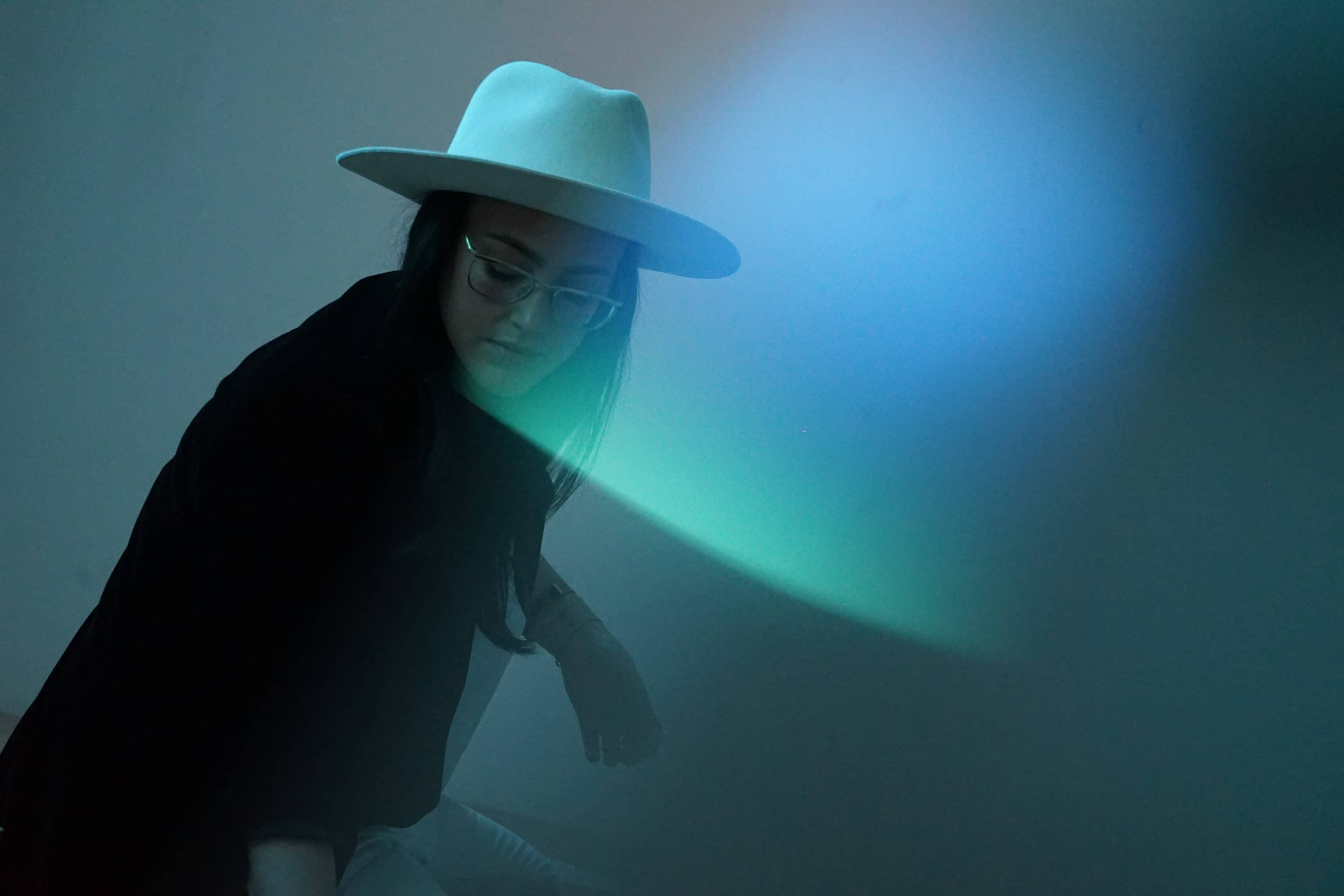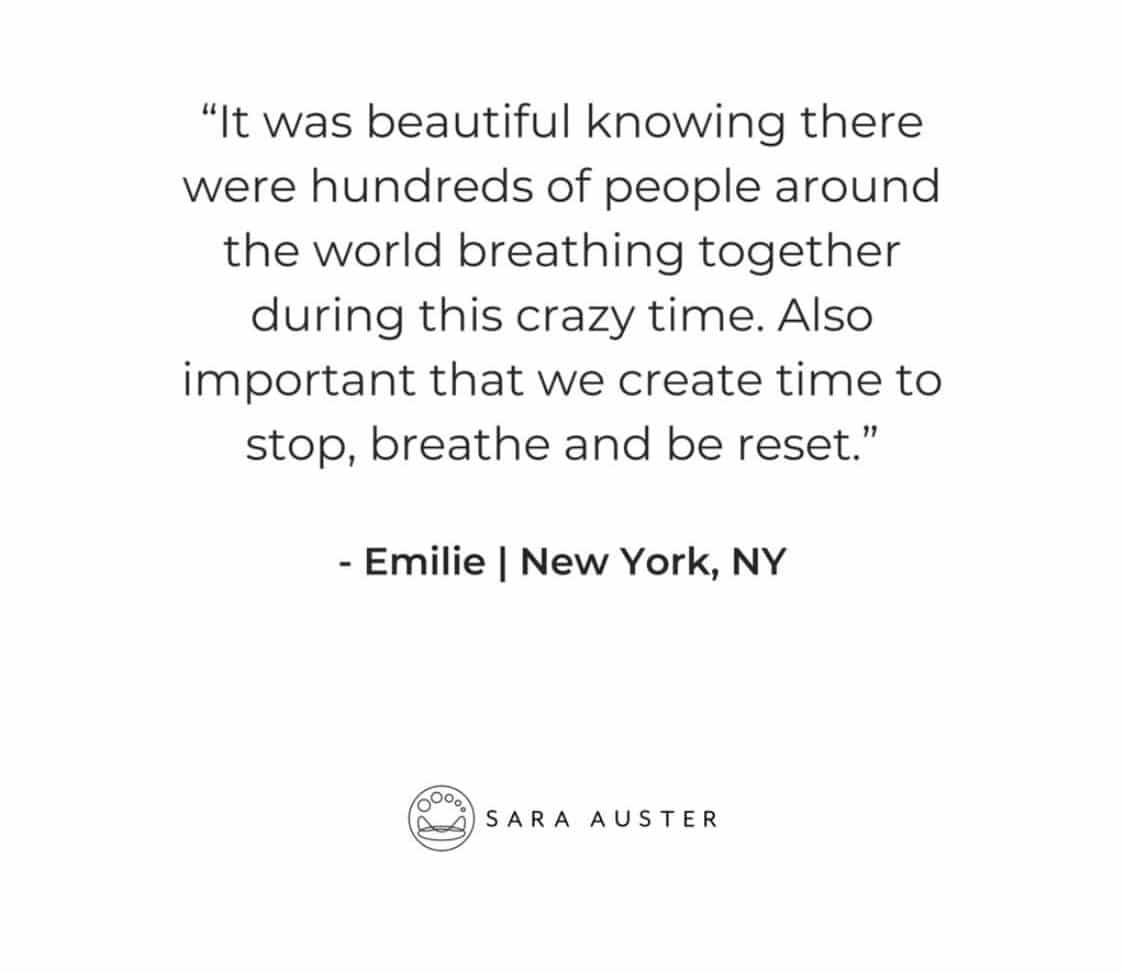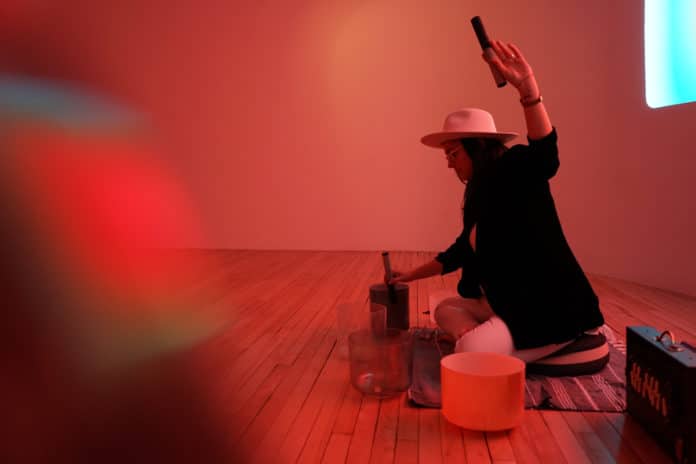We’re literally grounded at home but many of us are feeling more ungrounded than ever. Central nervous systems are running wild. To the rescue: a virtual sound bath. We tried it (joining hundreds of people around the world), and we came away feeling refreshed and back-to-self. We talk to Sara about how sound can help us disconnect, escape, and travel without traveling.

Deep Relaxation and Self-Discovery
For those who may not be that familiar with a sound bath, what is it?
A sound bath is a deeply immersive, full-body listening experience that intentionally uses sound to invite gentle yet powerful therapeutic processes to nurture the mind and body.
After a few minutes of guided focus on the breath, the remainder of the experience is filled with different sounds and frequencies being introduced in succession. The sounds introduced during a sound bath are an invitation into a deeper state of consciousness, an opportunity to unplug from external stimuli and to gain perspective on what’s going on within you. The goal of the experience is to invite deep rest and relaxation, and explore self-inquiry and self-discovery.
Virtual Sound Baths as a Balm for Difficult Times
You’ve started offering virtual sound baths on Instagram to help with COVID-19. What’s the response been like?
We are in an unprecedented state of anxiety and unknowns. I’ve long seen the effect that sound baths can have on people to calm the mind, release stress and invite in compassion and connection. While sound baths are typically in-person experiences, technology has allowed us to connect in new and innovative ways. In addition, I believe that in times like this, there’s one thing that’s certain: we can all use more meaningful connection.
Since I started offering virtual sound baths earlier in March, there has been an outpouring of gratitude. Italy, Spain, Brazil, Japan, Australia, Netherlands, France, Germany, Brazil, UK, US and more…we are connected through a shared experience of sound. We listen, laugh, cry and raise our voices together, remembering that listening is free, love is not confined, our gratitude is not confined. It is an honor to hold this kind of space for people all around the world.

“Our minds and emotions may be moving more quickly than before”
You mentioned that just because people are at home, that doesn’t mean they are rested. This really resonates with me. Can you elaborate?
Many of us are spending much more time at home. This might present the illusion of resting. Some might even feel lazy, binge-watching shows or obsessively checking the news and social media. Some might feel pressure to start a new hobby or project with all of this “free time.” Even though our bodies might seem like they are physically “resting” our minds and emotions may be moving more quickly than before.
When you’re watching television, the news, or looking at social media, you’re most likely receiving information that is causing excitation or requires mental or emotional reactivity. It’s multi-sensory stimulation: lights flashing, sounds changing. It is not exactly restful. You are still being prompted; you’re not giving your mind a chance to just wander.
Finding Balance and Harmony
Why is rest so important right now?
As the world feels more chaotic with each passing day, we need to find more moments of pause. Being able to access a moment of stillness internally when everything is rapidly swirling around outside of you (or perhaps also inside) is like a superpower.
Sound can help us disconnect — unplug, escape, and find balance and harmony in the mind and body. If you allow yourself to be present and completely engaged in the sound-bath experience, it can often feel like “traveling” without moving.
Just close your eyes and listen, and the sound will take you where you need to go.
The Intel
Join Sara for a Virtual Sound Bath on IG Live
Tuesdays and Thursdays, 12:00 pm EDT
Saturdays, 5:00 pm EDT
Read or listen to Sound Bath, an unprecedented and comprehensive guide to sound baths.
Listen to a short excerpt here.
Something you can do at home right now
Here’s a free track from Sara’s record “Namora”, called Awake, and a little guidance from her to enhance your experience:
- Get comfortable, either seated or lying down. Choose a position that you can be still in for about 20 minutes.
- Close your eyes (or cover them with an eye mask) and take three deep breaths. Inhale for four counts through the nose and exhale through the mouth. Then return to the natural breath.
- Turn your attention to your listening. Focus on the sound and the contrast it leaves in the room after it fades away.
- Let the sounds you hear anchor you in the present moment. Try not to get caught up in judging what you hear or analyzing the sounds; just listen, observe, and experience them. If you become restless or other thoughts come in, acknowledge and allow them but do not react to them. Stick with this for the length of the recording.
- Become aware of the space around you. Consciously become aware of the space in front, behind, and to the sides — even above and below. Allow yourself to feel as if your mind is expanding into the space surrounding, even expanding outside of the room.
- When the recording is complete, allow yourself to sit in silence for one to two minutes.
- Gently make small movements through your body, and slowly open your eyes. Observe how your awareness has shifted from the beginning of the practice.



